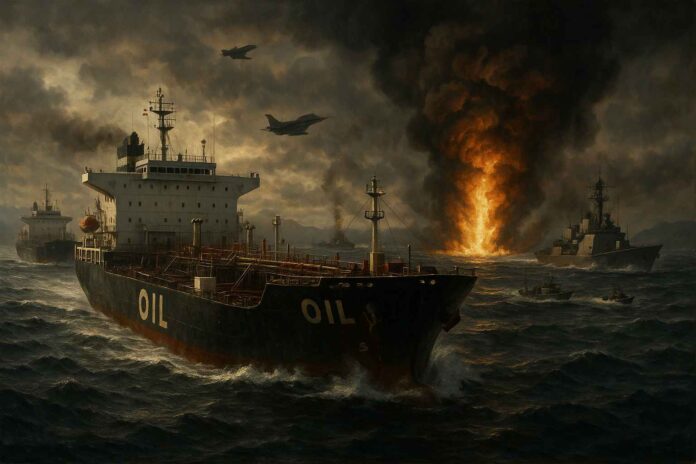Oil prices surged by over 4% during early trading on Monday, following US air strikes targeting Iran’s nuclear facilities, which heightened concerns about potential retaliation and disruptions to energy supplies.
Brent crude increased to $79.20, while WTI reached $75.98 before stabilizing. Iran, recognized as the ninth-largest oil producer globally, exports nearly half of its 3.3 million barrels per day, primarily through the Strait of Hormuz—a critical area of concern. Asian stock markets experienced declines, with Tokyo, Seoul, and Sydney all showing losses. Analysts have cautioned about significant uncertainty and the likelihood of maritime disruptions. US Defence Secretary Pete Hegseth stated that the strikes severely impacted Iran’s nuclear program, although the extent of the damage remains uncertain.
“Oil prices soared on Monday to their highest levels since January, as the United States’ recent decision to collaborate with Israel in attacking Iran’s nuclear sites raised supply apprehensions.
The price increase followed U.S. President Donald Trump’s assertion that he had ‘obliterated’ Iran’s primary nuclear facilities during the weekend strikes, marking an escalation in the Middle Eastern conflict as Tehran pledged to protect itself.
Iran stands as OPEC’s third-largest crude oil producer.
Market analysts anticipate further price increases due to growing fears that Iran’s retaliation could involve closing the Strait of Hormuz, through which approximately one-fifth of the world’s crude supply is transported.
The ongoing geopolitical tensions serve as a fundamental driver for Brent prices to rise, potentially approaching $100, with $120 per barrel becoming increasingly likely,” remarked Sugandha Sachdeva, founder of the New Delhi-based research firm SS WealthStreet.
Iran’s Press TV reported that the Iranian parliament has approved a proposal to close the strait. Although Iran has previously threatened to shut down the strait, it has never acted on those threats.
On Monday, Iran and Israel engaged in air and missile strikes, as global tensions escalated over Tehran’s anticipated reaction to the U.S. assault on its nuclear facilities.
“The risks of damage to oil infrastructure have significantly increased,” stated a senior analyst at Sparta Commodities.
Goldman Sachs mentioned in a report on Sunday that Brent prices may temporarily surge to $110 per barrel if oil transit through the vital waterway were reduced by half for one month, followed by a 10% decline for the next 11 months.
The bank continues to project no significant interruptions in the supply of oil and natural gas, emphasizing global efforts to avert any prolonged and substantial disruption.
Since the onset of the conflict on June 13, Brent prices have increased by 13%, while WTI has seen a rise of approximately 10%.
Notably, as the Strait of Hormuz is crucial for Iran’s oil exports, which are essential for its national economy, a long-term closure would cause considerable economic harm to Iran, presenting a complex scenario, as pointed out by Sachdeva.
In addition, on Monday, Japan urged for a de-escalation of the tensions in Iran, while a South Korean vice industry minister expressed worry about the possible repercussions of the strikes on the nation’s trade.
(Newsroom staff only edited this story for style from a syndicated feed)




